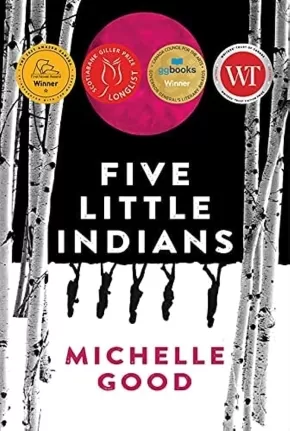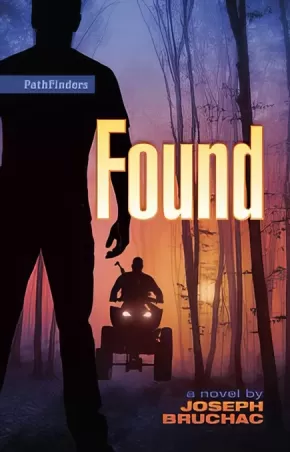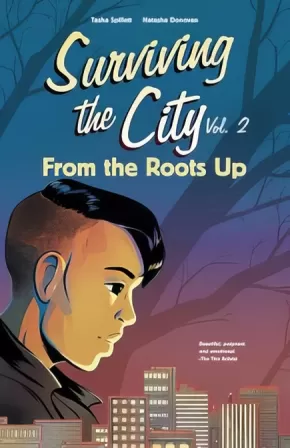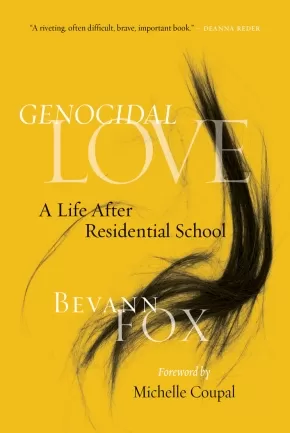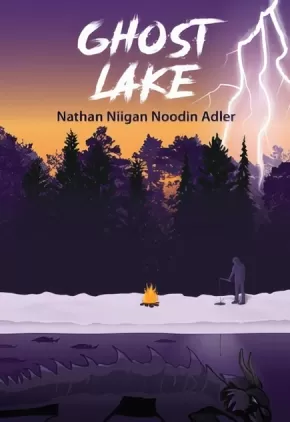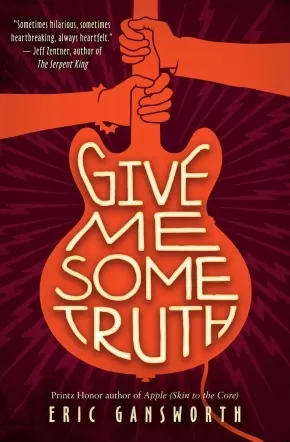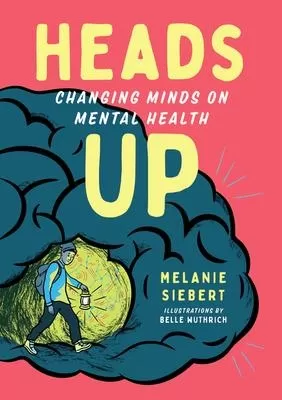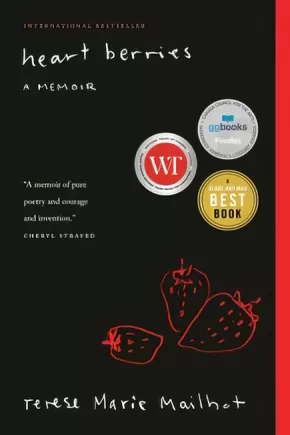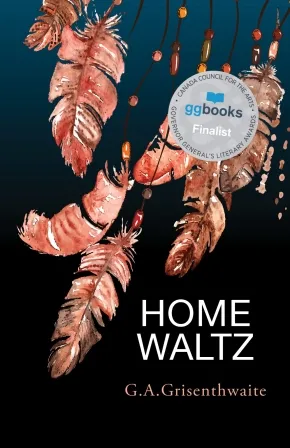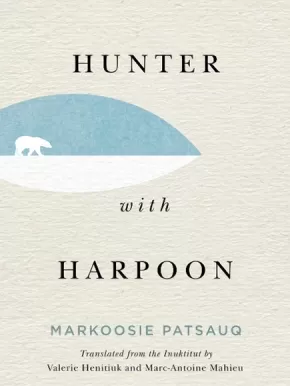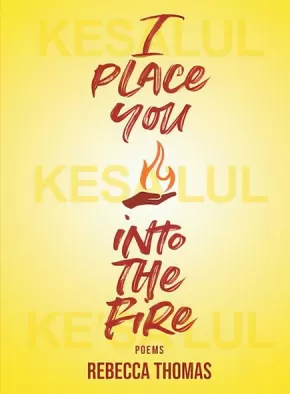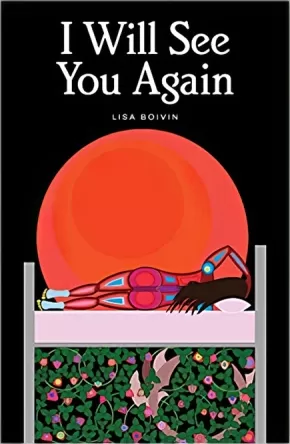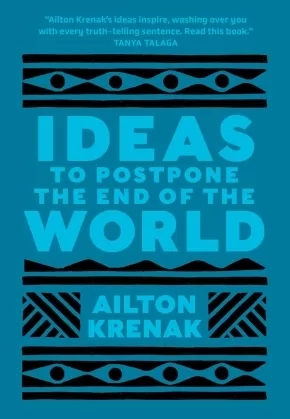
Indigenous Peoples
601
-
615
of
1080 Results;
Sort By
Go To
of 72
Fatty Legs: A True Story (10th Anniversary Edition) (PB)
$15.95
Artists:
Format:
Paperback
Text Content Territories:
Indigenous Canadian; Inuit; Inuvialuit (Mackenzie Inuit);
ISBN / Barcode: 9781773213507
Synopsis:
Synopsis:
The beloved story of an Inuvialuit girl standing up to the bullies of residential school, updated for a new generation of readers.
Margaret Olemaun Pokiak-Fenton’s powerful story of residential school in the far North has been reissued to commemorate the memoir’s 10th anniversary with updates to the text, reflections on the book’s impact, and a bonus chapter from the acclaimed follow-up, A Stranger at Home. New content includes a foreword from Dr. Debbie Reese, noted Indigenous scholar and founder of American Indians in Children’s Literature, while Christy Jordan-Fenton, mother of Margaret’s grandchildren and a key player in helping Margaret share her stories, discusses the impact of the book in a new preface.
With important updates since it first hit the shelves a decade ago, this new edition of Fatty Legs will continue to resonate with readers young and old.
Reviews
"I highly recommend this book for the discussion it would stir with students...Makes the harrowing residential school stories accessible to youth." — Resource Links
"Presents a unique and enlightening glimpse into the residential school experience and, most importantly, one little girl's triumph over her oppressors." — Quill & Quire
"Fatty Legs is a memoir written to introduce children to the reality of the residential school system and the focus on assimilating Indigenous peoples. The story documents the journey of a young girl who wanted to go to school to learn to read and her realization that school wasn’t what she imagined it to be." — The Dalai Lama Center
Educator Information
Themes: biography; Inuit; Indigenous peoples; Indigenous; arctic; school; self-esteem; abuse; community; prejudice; Canadian content; courage/bravery; right vs. wrong; role reversal; secrets; society; history; bullying; memoir; character education.
This resource is also available in French: Les bas du pensionnat
This resource is also available in its original format: Fatty Legs: A True Story
Additional Information
| 156 pages | 6.50" x 9.00" |
Authenticity Note
This illustrator of this book is not Indigenous; therefore, her artwork is not considered to be Authentic Indigenous Artwork according to Strong Nations Authenticity Guidelines. The archival photos from Margaret Pokiak-Fenton's personal collection, however, are considered to be authentic, which is why the book is labelled as containing Authentic Indigenous Artwork. It is up to readers to determine whether or not the images in this work are authentic for their purposes.
Finding Grace
$12.95
Format:
Paperback
Text Content Territories:
Indigenous American; Native American;
ISBN / Barcode: 9781939053299
Synopsis:
Synopsis:
Autumn Dawn has learned to deal with her dyslexia and her life is starting to look better, but a horrible accident threatens to change everything. When her mother and brother are crossing a street, they are accidentally hit by a car. Autumn's little brother is okay, but her mother ends up in intensive care. Autumn's father, who had walked away from his family awhile ago, leaving them to fend for themselves, is now back in their lives and trying to make amends. When Autumn's mom is released from the hospital, she still needs help, so Autumn's dad moves back home.
Can Autumn ever forgive her father for leaving his family in the first place, or will she continue to be angry and resentful? Is it possible to trust any male, including her devoted boyfriend?
Educator & Series Information
Recommended for ages 12+.
Fry Reading Level: 4.5
This book is part of the PathFinders Collection of Indigenous Hi-Lo- novels. Interest level is pre-teen on up.
The PathFinders series of Hi-Lo (high interest, low readability) novels offers the following features:
• Indigenous teen protagonists
• Age-appropriate plots
• 2.5 – 4.5 Reading Level
• Contemporary and historical fiction
• Indigenous authors
The PathFinders series is from an American publisher. Therefore, Indigenous terminology in the PathFinders books is not the same as Canadian Indigenous terminology. This prompts a useful teaching moment for educators in discussing appropriate terminology use in Canada.
This book is also part of the Autumn Dawn Series, a subseries of the PathFinders.
Additional Information
120 pages | 4.50" x 7.00" | Paperback
Five Little Indians
$22.99
Format:
Paperback
Text Content Territories:
Indigenous Canadian;
Reading Level: N/A
ISBN / Barcode: 9781443459181
Synopsis:
Synopsis:
Taken from their families when they are very small and sent to a remote, church-run residential school, Kenny, Lucy, Clara, Howie and Maisie are barely out of childhood when they are finally released after years of detention.
Alone and without any skills, support or families, the teens find their way to the seedy and foreign world of Downtown Eastside Vancouver, where they cling together, striving to find a place of safety and belonging in a world that doesn’t want them. The paths of the five friends cross and crisscross over the decades as they struggle to overcome, or at least forget, the trauma they endured during their years at the Mission.
Fuelled by rage and furious with God, Clara finds her way into the dangerous, highly charged world of the American Indian Movement. Maisie internalizes her pain and continually places herself in dangerous situations. Famous for his daring escapes from the school, Kenny can’t stop running and moves restlessly from job to job—through fishing grounds, orchards and logging camps—trying to outrun his memories and his addiction. Lucy finds peace in motherhood and nurtures a secret compulsive disorder as she waits for Kenny to return to the life they once hoped to share together. After almost beating one of his tormentors to death, Howie serves time in prison, then tries once again to re-enter society and begin life anew.
With compassion and insight, Five Little Indians chronicles the desperate quest of these residential school survivors to come to terms with their past and, ultimately, find a way forward.
Awards
- Amazon Canada First Novel Award
- 2020 Governor General's Literary Award for English-language fiction
- 2022 Canada Reads Winner
Educator Information
Winner of the 2018 HarperCollins/UBC Price for Best New Fiction, Michelle Good's Five Little Indians is told from alternating points of view of five former residential school students as they struggle to survive in 1960s Vancouver.
Additional Information
304 pages | 6.00" x 9.00"
Found
$12.95
Format:
Paperback
Text Content Territories:
Indigenous American; Native American; Abenaki (Wabanaki);
ISBN / Barcode: 9781939053237
Synopsis:
Synopsis:
A teenage survival expert finds all of his skills tested as he's pursued through the Canadian wilderness by men determined to silence him. On his way to teach at Camp Seven Generations, a Native outdoor school, Nick witnesses a murder and then is thrown off a train. Remembering and using the teachings of his Abenaki elders will prove to be the difference between life and death for him. Although his pursuers have modern technology to help them, Nick has something even more useful. In addition to the skills he's learned, he has an ally in the natural world around him. Found, like the famous story "The Most Dangerous Game,"is a tale that focuses on being hunted until a way can be found to become the hunter.
Reviews
Review from ALA Booklist: "This high/low adventure is the epitome of an adrenaline rush. It is a terrific survival story packed with fascinating facts (how to cover tracks and hide all evidence of a campsite, what to do if you find yourself in a cave with a bear) and wonderful nods to the Abenaki language and Native American cultural tenants of thanking animals and leaving no trace." — Becca Worthington
Educator & Series Information
Recommended for ages 12+
Fry Reading Level: 4
This book is part of the PathFinders series. The PathFinders series of Hi-Lo (high interest, low readability) novels offers the following features:
• Indigenous teen protagonists
• Age-appropriate plots
• 2.5 – 4.5 Reading Level
• Contemporary and historical fiction
• Indigenous authors
The PathFinders series is from an American publisher. Therefore, Indigenous terminology in the PathFinders books is not the same as Canadian Indigenous terminology. This prompts a useful teaching moment for educators in discussing appropriate terminology use in Canada.
Additional Information
96 pages | 4.50" x 7.00" | Paperback
From the Roots Up: Surviving the City Vol. 2
$21.95
Artists:
Format:
Paperback
Text Content Territories:
Indigenous Canadian; First Nations; Anishinaabeg; Cree (Nehiyawak);
ISBN / Barcode: 9781553798989
Synopsis:
Synopsis:
Dez and Miikwan’s stories continue in this sequel to Surviving the City.
Dez’s grandmother has passed away. Grieving, and with nowhere else to go, she’s living in a group home. On top of everything else, Dez is navigating a new relationship and coming into her identity as a Two-Spirit person.
Miikwan is crushing on the school’s new kid Riel, but doesn’t really understand what Dez is going through. Will she learn how to be a supportive ally to her best friend?
Elder Geraldine is doing her best to be supportive, but she doesn’t know how to respond when the gendered protocols she’s grown up with that are being thrown into question.
Will Dez be comfortable expressing her full identity? And will her community relearn the teachings and overcome prejudice to celebrate her for who she is?
Educator & Series Information
Recommended for ages 12 to 18.
This is the second volume in the Surviving the City graphic novel series, which is also part of the Debwe Series.
Surviving the City is a contemporary graphic novel series about young Indigenous women navigating their way in an urban environment. It includes these books:
Surviving the City
From the Roots Up
We Are the Medicine
A Teacher Guide is available: Surviving the City Teacher Guide: Exploring Identity, Allyship, and Social Action for Meaningful Change in Grades 7-12
Additional Information
64 pages | 6.50" x 10.00"
Genocidal Love: A Life after Residential School
$21.95
Text Content Territories:
Indigenous Canadian; First Nations; Cree (Nehiyawak);
Grade Levels: 12; University/College;
ISBN / Barcode: 9780889777415
Synopsis:
Synopsis:
How can we heal in the face of trauma? How can we transform intergenerational pain into a passion for community and healing?
Presenting herself as “Myrtle,” residential school survivor and Indigenous television personality Bevann Fox explores essential questions by recounting her life through fiction. She shares memories of an early childhood filled with love with her grandparents—until she is sent to residential school at the age of seven. Her horrific experiences of abuse there left her without a voice, timid and nervous, never sure, never trusting, affecting her romantic relationships and family bonds for years to come.
This is the story of Myrtle battling to recover her voice. Genocidal Love is a powerful confirmation of the long-lasting consequences of residential school violence —and a moving story of finding a path towards healing.
Awards
- 2021 Indigenous Voices Awards winner for Published Prose in English: Creative Nonfiction and Life-Writing
Reviews
“A riveting, often difficult, brave, important book. ” —Deanna Reder, Chair, Department of Indigenous Studies, Simon Fraser University
“A riveting and courageous reflection. . . . Genocidal Love is unique in its detailed account of the often re-traumatizing effects of the legal and bureaucratic barriers of compensation programs predating the Truth and Reconciliation Commission. ” —Jesse Rae Archibald-Barber, editor of kisiskâciwan and co-editor of Performing Turtle Island
“Fox tears beauty from the jaws of genocide, daring to claim love beyond settler imaginings—love that nurtures decolonial futures and makes possible a more just world. ”—Sam McKegney, author of Magic Weapons and Masculindians
Educator Information
A forward from Michelle Coupal explains more about "Genocidal Love—a story that Bevann tells about herself outside the boundaries of what constitutes fiction and non-fiction".
Additional Information
256 pages | 5.00" x 7.00"
Ghost Lake
$19.95
Format:
Paperback
Text Content Territories:
Indigenous Canadian; First Nations; Anishinaabeg; Ojibway;
Reading Level: N/A
ISBN / Barcode: 9781928120247
Synopsis:
Synopsis:
In Ojibwe cosmology there are thirteen moons...
And in the pages of Ghost Lake are thirteen stories featuring an interrelated cast of characters and their brushes with the mysterious. Issa lives in fear of having her secret discovered, Aanzheyaawin haunts the roads seeking vengeance, Zaude searches for clues to her brother’s death, Garion wrestles with his sexual inclinations, Fanon struggles against an unexpected winter storm, Kylie fights to make it back to shore, Eadie and Mushkeg share a magical night, Tyner faces brutal violence, and Tyler, Clay, and Dare must make amends to the spirits before it’s too late. On the northern Ontario reserve of Ghost Lake the precolonial past is not so distant, and nothing is ever truly lost or destroyed. Because the land remembers.
Awards
- 2021 Indigenous Voices Awards winner for Published Prose in English: Fiction
Reviews
“Adler gifts us with this collection of intense life and death stories that straddle the worlds of the everyday and the fantastic. These stories challenge the notion of default reality and Adler crafts them with a deft hand.”—Michelle Good, author of Five Little Indians
“Ghost Lake is the border to all things known—but not in the way wider society conceives them: there is no lighthouse imposing its dichotomy on the darkness. It invites recovery and connection from its characters beautifully; story, memory, and relationship build the landscape for them to walk on. The people of Ghost Lake move through experiences with a curiosity and bravery that I hope all readers have—where there are no experts to place rules on a community’s desire to remember. We need more collections like this.”—Tyler Pennock, author of Bones
“A memorable, necessary read, Nathan Adler’s remarkable collection Ghost Lake delves into the life-changing passages of love and loss, revenge and redemption, survival and discovery. His vital, authentic characters journey through a world in which the boundary between the so-called real and the illusory—the realm of mysteries, spirits, and myths—is itself revealed to be the illusion. These imaginative, expertly crafted stories are guaranteed to illuminate and stir, to challenge and entertain.” —Daniel Scott Tysdal, author of The Writing Moment: A Practical Guide to Creating Poems
Educator Information
An interconnected collection of stories set on the fictional Northern Ontario Reserve of Ghost Lake, featuring a cast of interrelated characters and their encounters with the supernatural and other phenomenon, with themes ranging from love, loss, and relationships, to the meaning of monstrosity, violence, tragedy, and justice.
Ghost Lake is the sequel to Nathan Adler's debut horror novel, Wrist.
Pyromaniacs, vigilantes, mysterious phenomena, prehistoric beasts, cryptid species, grave robbers and ghosts… the stories of Ghost Lake feature a cast of interrelated characters and their brushes with the supernatural, creatures of Ojibwe cosmology, the Spirit World, and with monsters, both human and otherwise. Nathan Niigan Noodin Adler shows us that the precolonial past is not so distant, that history informs the present, and nothing is ever truly lost or destroyed, because the land remembers.
Additional Information
320 pages | 5.50" x 8.00"
Give Me Some Truth
$16.99
Format:
Paperback
Text Content Territories:
Indigenous American; Native American; Haudenosaunee (Iroquois); Tuscarora;
ISBN / Barcode: 9781338582161
Synopsis:
Synopsis:
Carson Mastick is entering his senior year of high school and desperate to make his mark, on the reservation and off. A rock band -- and winning Battle of the Bands -- is his best shot. But things keep getting in the way. Small matters like the lack of an actual band, or his brother getting shot by the racist owner of a local restaurant.
Maggi Bokoni has just moved back to the reservation with her family. She's dying to stop making the same traditional artwork her family sells to tourists (conceptual stuff is cooler), stop feeling out of place in her new (old) home, and stop being treated like a child. She might like to fall in love for the first time too.
Carson and Maggi -- along with their friend Lewis -- will navigate loud protests, even louder music, and first love in this stirring novel about coming together in a world defined by difference.
Reviews
"Gansworth's follow-up to If I Ever Get Out of Here has an incredible voice.... His characters are rich, well developed, and will stay with readers for a long time.... A stellar choice for YA realistic fiction shelves." -- School Library Journal, starred review
"Gansworth vividly captures the difficulties of reservation life and showcases his thoughtful protagonists' multidimensional interests and far-reaching aspirations." --Publishers Weekly
"An intimate look at the teens' lives.... A rich, honest story of family and friends, of a Nation within a nation." -- The Horn Book
"A 1980s Native American coming-of-age story grapples with the day-to-day details of teenagers’ lives on and off the reservation.... A classic teen novel, especially for Native youth and Beatles fans." - Kirkus Review
Educator Information
Recommended for ages 14+
Additional Information
432 pages | 5.50" x 8.25"
Heads Up: Changing Minds on Mental Health
$24.95
Artists:
Format:
Paperback
Text Content Territories:
Indigenous;
ISBN / Barcode: 9781459819115
Synopsis:
Synopsis:
Featuring real-life stories of people who have found hope and meaning in the midst of life’s struggles, Heads Up: Changing Minds on Mental Health is the go-to guide for teenagers who want to know about mental health, mental illness, trauma and recovery. For too long, mental health problems have been kept in the shadows, leaving people to suffer in silence, or worse, to be feared, bullied or pushed to the margins of society where survival is difficult.
This book shines a light on the troubled history of thinking about and treating mental illness and tells the stories of courageous pioneers in the field of psychiatry who fought for more compassionate, respectful and effective treatments. It provides a helpful guide to the major mental health diagnoses along with ideas and resources to support those who are suffering. But it also moves beyond a biomedical focus and considers the latest science that shows how trauma and social inequality impact mental health. The book explores how mental health is more than just “in our heads” and includes the voices of Indigenous people who share a more holistic way of thinking about wellness, balancing mind, body, heart and spirit. Highlighting innovative approaches such as trauma-informed activities like yoga and hip-hop, police mental health teams, and peer support for youth, Heads Up shares the stories of people who are sparking change.
Educator Information
Recommended for ages 12+.
Keywords / Subjects / Themes: youth mental health, mental health, anxiety, recovery, ending stigma, Indigenous youth.
Additional Information
192 pages | 6.00" x 8.50"
Heart Berries: A Memoir (PB)
$19.95
Format:
Paperback
Text Content Territories:
Indigenous Canadian; First Nations; Salish; Coast Salish; Sto:lo; Seabird Island;
ISBN / Barcode: 9780385691161
Synopsis:
Synopsis:
Guileless and refreshingly honest, Terese Mailhot's debut memoir chronicles her struggle to balance the beauty of her Native heritage with the often desperate and chaotic reality of life on the reservation.
Heart Berries is a powerful, poetic memoir of a woman's coming of age on the Seabird Island Indian Reservation in British Columbia. Having survived a profoundly dysfunctional upbringing only to find herself hospitalized and facing a dual diagnosis of Post Traumatic Stress Disorder and Bipolar II, Terese Mailhot is given a notebook and begins to write her way out of trauma. The triumphant result is Heart Berries, a memorial for Mailhot's mother, a social worker and activist who had a thing for prisoners; a story of reconciliation with her father--an abusive drunk and a brilliant artist--who was murdered under mysterious circumstances; and an elegy on how difficult it is to love someone while dragging the long shadows of shame.
Mailhot "trusts the reader to understand that memory isn't exact, but melded to imagination, pain and what we can bring ourselves to accept." Her unique and at times unsettling voice graphically illustrates her mental state. As she writes, she discovers her own true voice, seizes control of her story and, in so doing, reestablishes her connection to her family, to her people and to her place in the world.
Educator Information
This book is available in French: Petite Femme Montagne
Additional Information
144 pages | 5.00" x 7.50" | Paperback
Home Waltz
$18.95
Format:
Paperback
Text Content Territories:
Indigenous Canadian; First Nations; Salish; Interior Salish; Nlaka'pamux (Thompson);
Grade Levels: 12; University/College;
ISBN / Barcode: 9781989287644
Synopsis:
Synopsis:
In 1973, fifteen-year old, or "Squito" Bob, is a mixed-blood NłeᎮkepmx boy trying to find his place in a small, mostly Native town. His closest friends are three nłeᎮkepmx boys and a white kid, an obnoxious runt who thinks himself superior to his friends. Accepted as neither Native nor white, Squito often feels like the stray dog of the group and envisions a short, disastrous life for himself. HOME WALTZ follows the boys over thirty-six hours on what should be one of the best weekends of their lives. With a senior girls volleyball tournament in town, Squito's favourite band performing, and enough alcohol for ten people, the boys dream of girls, dancing and possibly romance. A story of love, heartbreak and tragedy, HOME WALTZ delves into suicide, alcohol abuse, body image insecurities, and systemic racism. A coming of age story like no other, HOME WALTZ speaks to one indigenous youth's experience of growing up in a world that doesn't want or trust him.
Reviews
"In Squito Bob, Gordon Grisenthwaite has given us a latter-day Holden Caufield, fighting hormones, toxic friendships, and the general stupidity of others in the fleeting hope of his own brief shot at transcendence. Home Waltz is a tour de force, full of compassion and insight and humour and utterly unflinching in its look at the hard truths of life on the res." —Nino Ricci, author of Lives of the Saints, and Testament
"Grisenthwaite weaves the classic coming-of-age tale into a story of deep grief and longing for place, the unfair treatment of First Nations people, but also the heart and kinship of First Nation’s communities."—Crystal Mackenzie, Freefall Magazine
Additional Information
304 pages | 5.25" x 8.25" | Paperback
Hunter with Harpoon
$22.95
Format:
Paperback
Text Content Territories:
Indigenous Canadian; Inuit;
Grade Levels: University/College;
ISBN / Barcode: 9780228004028
Synopsis:
Synopsis:
A new English translation of an acclaimed 1970 novel reveals a stark, powerful story, an Inuit worldview, and the unique voice of Markoosie Patsauq.
Published fifty years ago under the title Harpoon of the Hunter, Markoosie Patsauq's novel helped establish the genre of Indigenous fiction in Canada. This new English translation unfolds the story of Kamik, a young hero who comes to manhood while on a perilous hunt for a wounded polar bear. In this astonishing tale of a people struggling for survival in a brutal environment, Patsauq describes a life in the Canadian Arctic as one that is reliant on cooperation and vigilance.
In collaboration with the author, Valerie Henitiuk and Marc-Antoine Mahieu return to the original Inuktitut text to provide English readers with a more accurate translation. With a preface by Patsauq and an afterword from the translators, this edition offers a fresh and contextualized interpretation of a cultural milestone. Whether revisiting this classic or discovering it for the first time, readers will find in Hunter with Harpoon a sophisticated coming-of-age tale illustrating a way of life not as it appeared to southerners, but as it has survived in the memory of the Inuit themselves.
Educator Information
Translated from the Inuktitut by Valerie Henitiuk and Marc-Antoine Mahieu.
Valerie Henitiuk, translation studies specialist, is provost at Concordia University of Edmonton.
Marc-Antoine Mahieu is professor of Inuktitut at the Institut national des langues et civilisations orientales, Université Sorbonne Paris Cité, and consultant for the Kativik school board in Nunavik.
This book is available in French: Chasseur au harpon
Additional Information
104 pages | 5.98" x 7.99"
I Place You into the Fire
$18.95
Format:
Paperback
Text Content Territories:
Indigenous Canadian; First Nations; Mi'kmaq;
Grade Levels: 12; University/College;
ISBN / Barcode: 9781771088855
Synopsis:
Synopsis:
The incisive and vital first poetry collection from Mi'kmaw spoken-word poet and former poet laureate of Kjipuktuk (Halifax), Nova Scotia.
We remember tomorrow and a thousand years ago.
From eel weirs to the buffalo.
We remember petroglyphs and Instagram photos.
See, we remember our history,
Without statues, money, or pictures of the Queen.
In Mi'kmaw, three similarly shaped words have drastically different meanings: kesalul means "I love you"; kesa'lul means "I hurt you"; and ke'sa'lul means "I put you into the fire." In spoken-word artist and critically acclaimed author (I'm Finding My Talk) Rebecca Thomas's first poetry collection, readers will feel Thomas's deep love, pain, and frustration as she holds us all to task, along the way mourning the loss of her childhood magic, exploring the realities of growing up off reserve, and offering up a new Creation Story for Canada.
Diverse and probing, I place you into the fire is at once a meditation on navigating life and love as a second-generation Residential School survivor, a lesson in unlearning, and a rallying cry for Indigenous justice, empathy, and equality. A searing collection that embodies the vitality and ferocity of spoken-word poetry.
Additional Information
128 pages | 5.50" x 7.50"
I Will See You Again
$25.00
Artists:
Format:
Hardcover
Text Content Territories:
Indigenous Canadian; First Nations; Dene; Deninu K’ue ;
ISBN / Barcode: 9781553798552
Synopsis:
Synopsis:
When the author learns of the death of her brother overseas, she embarks on a journey to bring him home. Through memories and dreams of all they shared together and through her Dene traditions, she finds comfort and strength. The lyrical art and story leave readers with a universal message of hope and love.
Educator Information
Recommended for ages 12+ (Mature Picture Book)
In this emotional illustrated picture book, author and illustrator Lisa Boivin tells the story of the loss of her brother and the journey with her Dene traditions to find comfort and the strength to move on from her grief.
This book explores themes of death, memory, remembrance, comfort, and specifically Dene perspectives on death.
The author's deeply personal story is revealed through exquisite artwork and text that are grounded in her family's Dene culture.
Lisa Boivin's experiences as an artist and bioethicist inform her story, expressed in the Indigenous way of passing knowledge through images.
Additional Information
56 pages | 6.50" x 10.00" | Colour illustrations throughout
Ideas to Postpone the End of the World
$16.95
Format:
Paperback
Text Content Territories:
Indigenous;
ISBN / Barcode: 9781487008512
Synopsis:
Synopsis:
“Ailton Krenak’s ideas inspire, washing over you with every truth-telling sentence. Read this book.” — Tanya Talaga, bestselling author of Seven Fallen Feathers
Indigenous peoples have faced the end of the world before. Now, humankind is on a collective march towards the abyss. Global pandemics, extreme weather, and massive wildfires define this era many now call the Anthropocene.
From Brazil comes Ailton Krenak, renowned Indigenous activist and leader, who demonstrates that our current environmental crisis is rooted in society’s flawed concept of “humanity” — that human beings are superior to other forms of nature and are justified in exploiting it as we please.
To stop environmental disaster, Krenak argues that we must reject the homogenizing effect of this perspective and embrace a new form of “dreaming” that allows us to regain our place within nature. In Ideas to Postpone the End of the World, he shows us the way.
Reviews
“Perhaps you’re thinking we should come out of the COVID crisis in a new way, not just trying to recreate the old normal. If so, Ailton Krenak has some ideas that might send you down a new and useful path — useful to you, useful to the world.” — Bill McKibben, author of Falter: Has the Human Game Begun to Play Itself Out?
“We need this Right Now! Ideas to Postpone the End of the World.” — @MargaretAtwood
“Ailton Krenak’s words, expressed with the visceral intensity of one of those peoples who ‘still consider the need to stay attached to this land,’ … fill me with hope. Amid the successive catastrophes we experience today, he surprises us once again by teaching that the fight for a better world, a world that can be called home, involves not only explicit activism, but dance, music, the stories we tell at night.” — Aparecida Vilaça, anthropologist and author of Strange Enemies: Indigenous Agency and Scenes of Encounters in Amazonia and Praying and Preying: Christianity in Indigenous Amazonia
Additional Information
88 pages | 4.50" x 6.50"
Sort By
Go To
of 72





